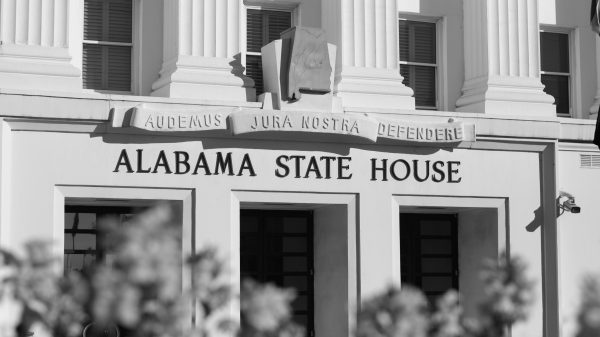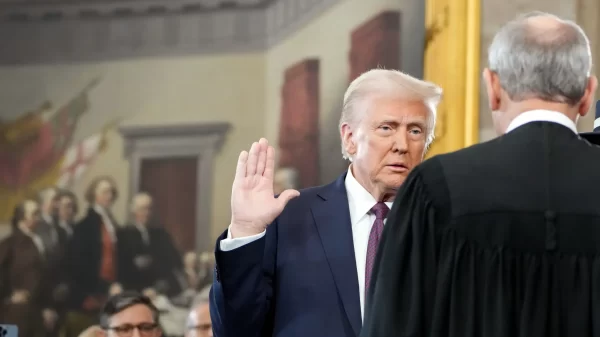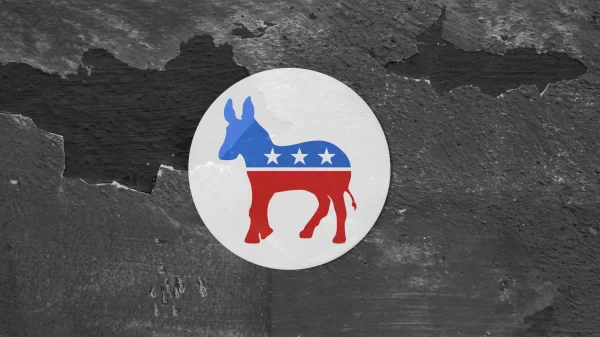House Bill 317, a controversial piece of legislation that has received pushback from both sides of the aisle and prompted threats of a filibuster, never made it to the Senate floor on Thursday, raising questions about whether the bill was still alive.
It is.
Even though lawmakers would need to raise to get the bill through both chambers by the Legislature’s self-imposed deadline next week, HB317 is still in the works.
Senate President Pro Tem Del Marsh, who’s carrying the legislation in the Senate, had planned for HB317 to be on the floor Thursday, but instead, senators spent much of the day crafting a substitute in an effort to appease other objecting senators, according to Marsh.
It isn’t clear what’s in the substitute, but senators will continue working over the weekend and could bring the legislation back to the floor next Tuesday when lawmakers will return for what is expected to be the final week of the session.
Sen. Dick Brewbaker, R-Montgomery, threatened to filibuster the bill Thursday. Combined with several other Democrats and Republicans who threatened the same — and others in the Republican caucus who said they wouldn’t vote for cloture — the effort got the bill pulled from the special order calendar.
Brewbaker said he is now part negotiations on the substitute, but wouldn’t be part of writing it.
“I told them I wasn’t going to help write it, because if you help write the sub you’re supposed to vote for it,” Brewbaker said.
The Montgomery Republican said the bill’s proponents need to get back to the original intent of the bill, which was to carve out a narrow exception for a very narrow range of people — professional site selectors — who are involved in economic development. Those individuals wouldn’t need to register as lobbyists, the bill would clarify.
Instead, the bill morphed into a vast one intended to enhance the state’s ability to perform economic development. By the same token, the bill also expanded to include provisions that exempt any “full-time” or “less-than-full-time” person classified as an “economic development professional” from having to register as a lobbyist, thus exempting them from the ethics law as well.
Instead of creating a small class of fewer than 50 people, the current version of the bill creates a broad class of individuals exempt from the ethics law who do — or say they do — pretty much any economic development.
Had the bill remained a narrowly drawn exception for only professional site selectors, Brewbaker said “everyone” would have supported it.
“Nobody has any problem with that,” Brewbaker said. “Everybody understands why it needs to be done, and, in fact, up until a few months ago, they didn’t have to register as lobbyists. And under the law, to be honest with you, the only reason there’s any confusion now is because the Ethics Commission won’t do its job and render a decision.”
Sen. Trip Pittman, R-Montrose, said he doesn’t support the bill because he has a general opposition economic development and incentives, which this bill would potentially bolster through allowing for bonds for industrial development and site preparation.
“I believe in free enterprise, and I don’t believe in subsidy and incentives,” Pittman said. “I think we need an overall good environment for businesses and individuals to succeed based on their effort and merit.”
Pittman said he also had concerns about transparency in the bill — what are the costs of the projects and what are the returns on what the Legislature is giving away.
“That’s oftentimes hard to determine on these projects,” Pittman said.
While the bill would clarify that economic development professionals are not lobbyists, Pittman said inherently some of what they do is lobbying.
“Part of what they do is to lobby, to advocate for legislation and to advocate for money in addition to the already approved incentives,” Pittman said. “That’s the question on how to create transparency but at the same time, there is some confidentiality in this process.”
The bill would allow for some economic development negotiations confidential in order to protect the projects.
“Some of that need is real but some of it is an opportunity for mischief,” Pittman said.
There is also concern the bill would allow lawmakers to skirt the revolving door statutes in the state’s ethics laws, which prevent lawmakers from registering as lobbyists for two years.
Pittman said he was less concerned about that provision because the Senate has a rule that prevents former lawmakers from lobbying for two years.
“You’re still an ex-senator,” Pittman said. “I think that’s the misunderstanding on the bill is that you can’t just wear different hats. Everything you’re involved in applies.”
Pittman has already been working on the bill, getting an amendment passed Wednesday that would allow for incentives to be tracked once they’re claimed. He said he will need to see what is in the substitute next week before he decides whether to support the bill.
“I still have serious concerns about the bill, and I’m going to withhold judgment until I see the final substitute,” Pittman said.
Brewbaker said if the leadership insists on keeping all of the extra language in the bill, he won’t feel support it and will likely threaten another filibuster on Tuesday — an act that could potentially derail the rest of the session if he’s joined be enough of his colleagues.
“It’s not just me, there’s a ton of opposition,” Brewbaker said. “They don’t have a chance unless they significantly alter that bill.”





















































